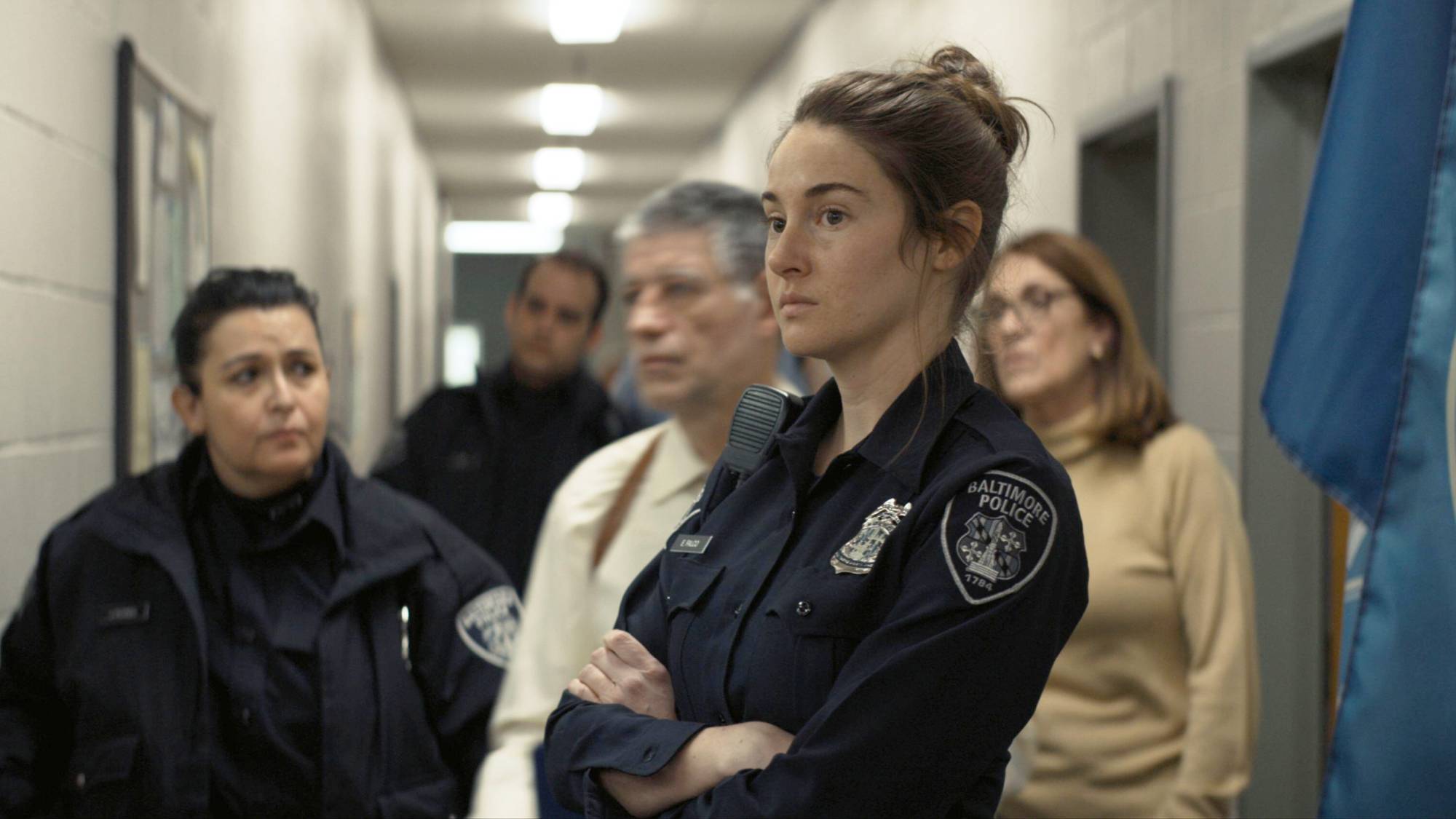How much sleep do adults need? America’s leading sleep doctor answers
Dr. Michael J. Breus, America's top sleep expert, explains how much sleep an adult needs and how to tell if you’re getting enough
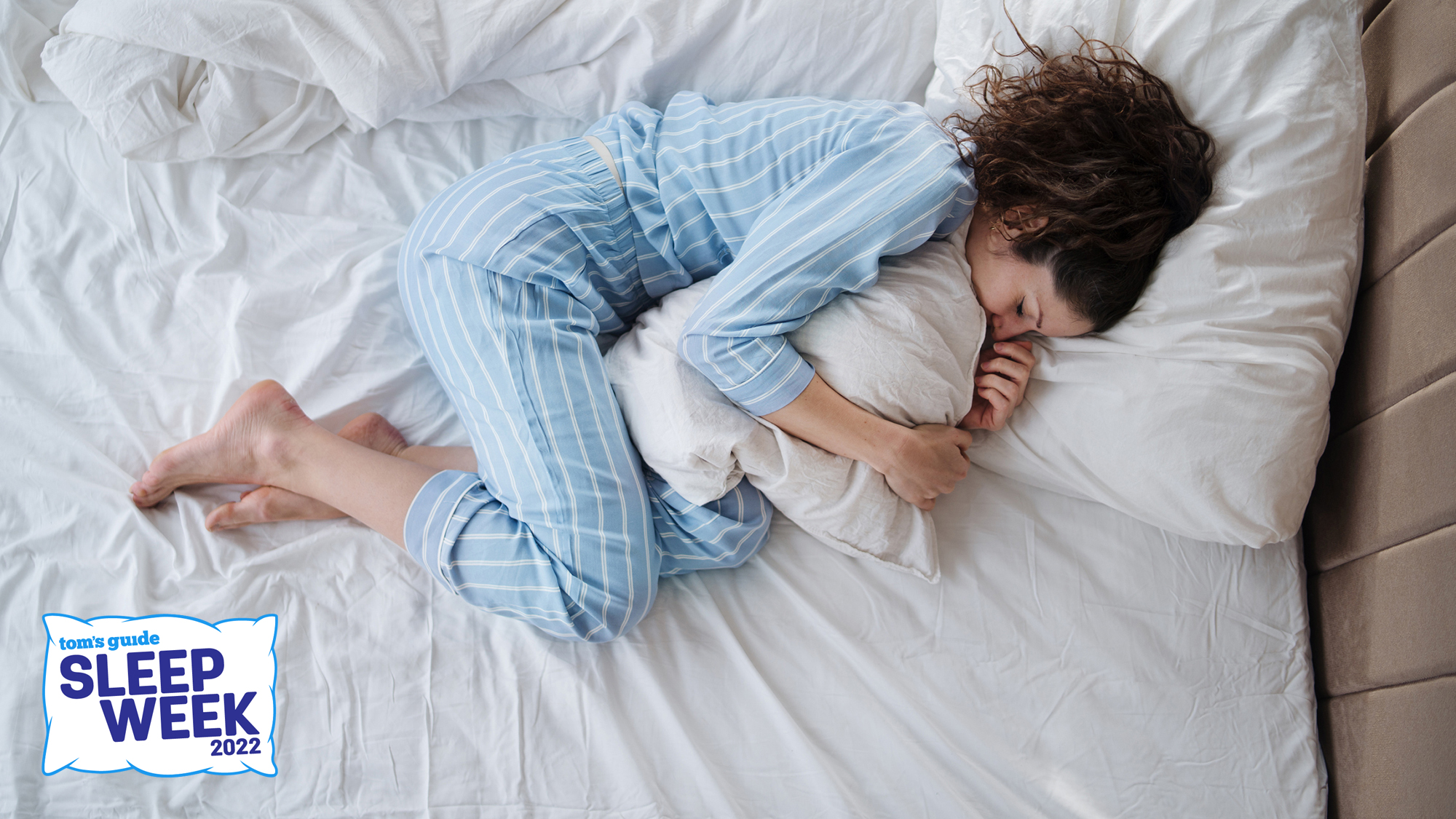
‘How much sleep do I need’ is something most of us ask at one point or another. We want to know if there’s a magic number we should be aiming for each night, and if that old chestnut about getting eight hours’ sleep is true for every adult or if it’s something of a myth.
Dr. Breus is a globally renowned sleep expert, Clinical Psychologist and a Diplomate of the American Board of Sleep Medicine and a Fellow of The American Academy of Sleep Medicine. Dr. Breus has published two books on sleep, and has been interviewed on CNN, Oprah, The View, The CBS Early Show, The Today Show and more.
Broadly speaking, studies have shown that getting the right amount of sleep at night reduces anxiety and depression, and lowers your risk of a variety of health conditions. Getting enough sleep also has positive effects for your immune system.
While guidelines recommend seven to nine hours’ sleep for most adults, the truth is that your age, health, how active you are and other factors can affect how much sleep you need.
To get an expert answer to this broad question, we spoke to Dr. Michael J. Breus, Chief Sleep Advisor at Purple and one of the foremost sleep doctors in America. Here’s what Dr. Breus had to say…
- How to sleep for longer at night, according to an insomnia expert
- I tried one of YouTube’s best deep sleep meditations — here’s what happened
- No, you shouldn’t follow Elon Musk’s sleep habits — here’s why
How much sleep do adults need?
“There is no single right amount of sleep that applies to everyone. Sleep needs are individual,” Dr Breus explains. “They’re based on a number of factors:
“Your individual genetics - your genes influence both your circadian rhythms and your internal sleep drive, the two primary biological sleep systems.
“Your age - you may find you need 7 hours of sleep in your 20s, and 8 hours—or 6.5—in your 50s or 60s.
Sign up to get the BEST of Tom's Guide direct to your inbox.
Get instant access to breaking news, the hottest reviews, great deals and helpful tips.
“Your activity levels - sleep is a form of energy for the body and mind, and a time for the body to recover from exertion. The more active you are, the more sleep you may need.
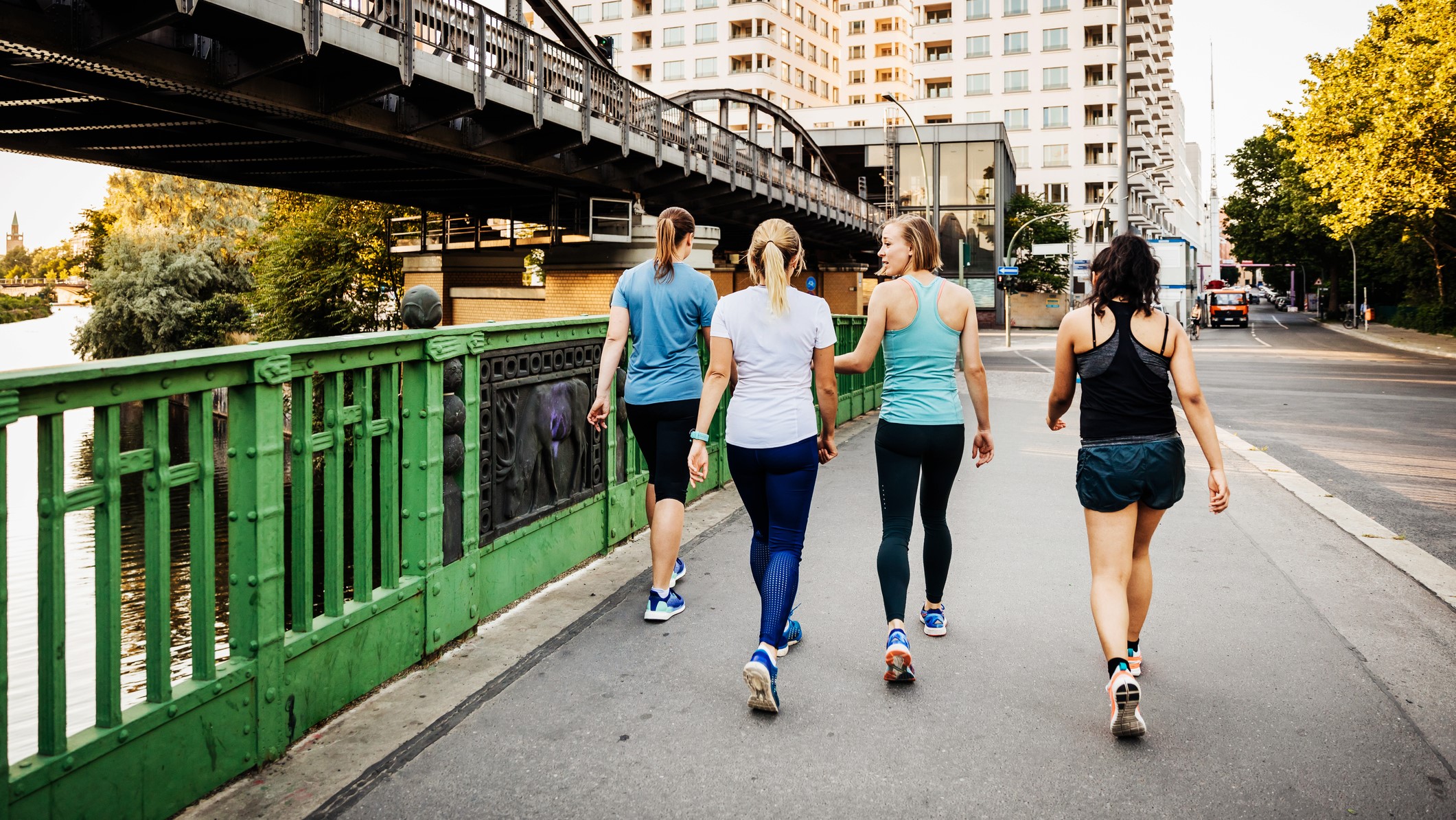
“Your health - when coping with health issues, we very often need additional rest. That’s true for short-term illnesses like colds and flu, as well as long-term or chronic conditions; everything from arthritis to cancer.
The National Sleep Foundation’s guidelines recommend:
Newborns 14-7 hours
Infants (4-11 months) 12-15 hours
Toddlers (1-2 years) 11-14 hours
Children (3-5 years) 10-13 hours
Kids (6-13 years) 9-11 hours
Teens (14-17 years) 8-10 hours
Adults (18-64 years) 7-9 hours
Adults (65+) 7-8 hours
“Your life circumstances - stress, and periods of change or upheaval can temporarily increase your need for sleep. (At the same time, these forces often make it difficult to sleep.) If stress is chronic, it can create a chronic sleep debt. And it’s not just negative or unwelcoming life events that can drive up a need for sleep: big life changes that are positive can demand more sleep too!
“All of this said, most of us, throughout our adult lifetimes, need somewhere in or near to 7-9 hours’ sleep a night, routinely.” Dr. Breus continues. “You might be a person who needs 6 or 6.5 hours, but it’s unlikely that any but a very few of us can function and feel at our best on 5 hours of nightly sleep or less.
“This is similarly true at the other end of the range. Some people need 9 hours of sleep a night. But if you’re regularly sleeping more than 9 hours, and still feeling tired and fatigued, that’s an indication you’re oversleeping—and it’s time to look at what might be causing it.”
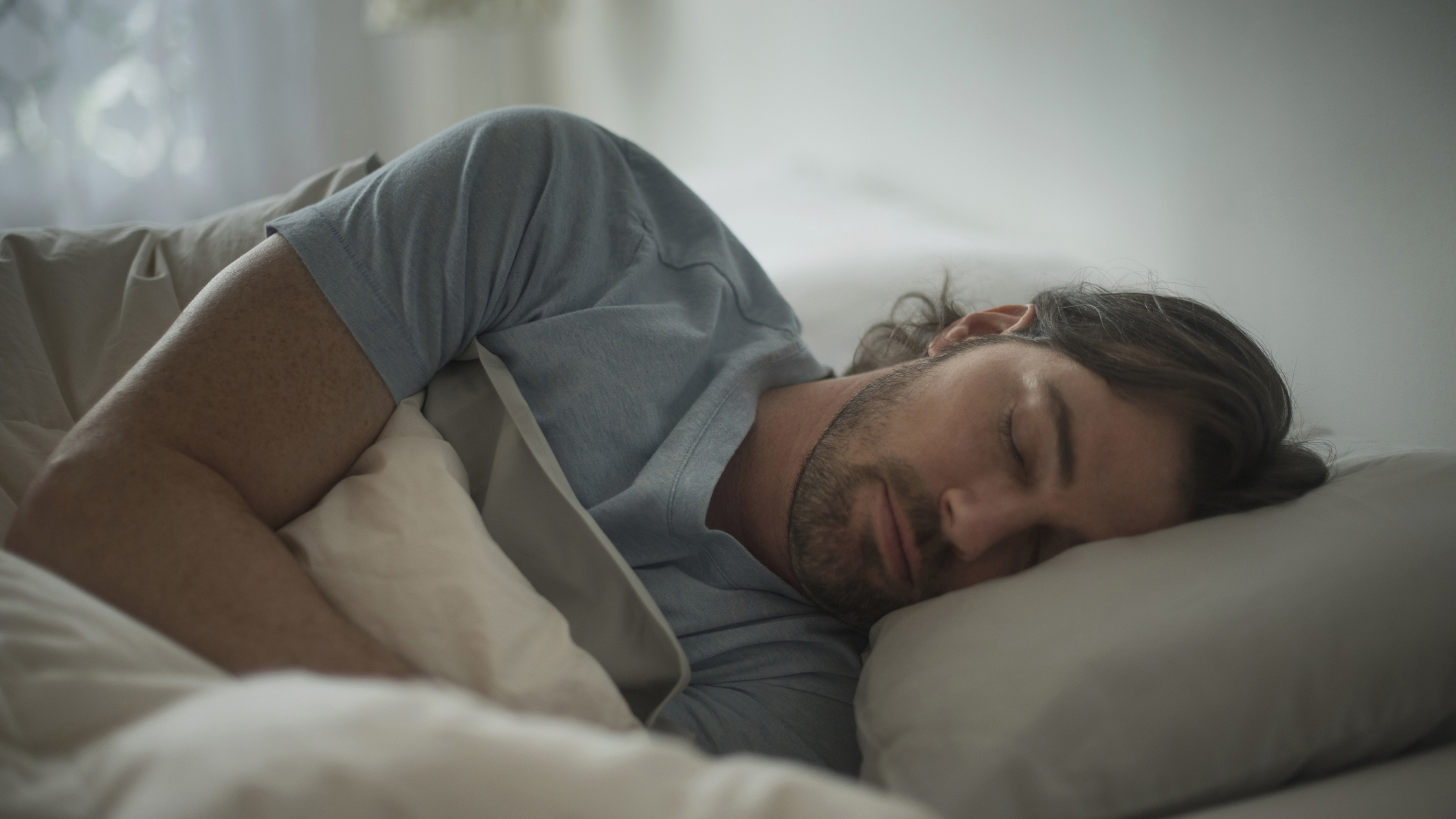
How much sleep is enough to get by if you’re not sleeping well?
Not sleeping well at night can cause you to feel tired and less focused the next day, but there are times when falling (and staying) asleep is harder than normal. So how much sleep do you need if you’re struggling to snooze well at night? “In this case you would actually need more sleep if it were of poor quality,” clarifies Dr. Breus.
Far from ‘switching off’, there are various processes going on while we sleep. The brain does this by cycling through the different stages of sleep. The stages of sleep include N1 (the lightest stage), N2 (still light sleep but you aren’t as easy to wake), N3 (deep sleep, where your muscles relax and your blood pressure drops), and REM sleep (stage R, where dreams occur and your body is immobilized).
“If you’re asking what the lower-level limit for sleep is, I would say no one should be sleeping less than 6 to 6.5 hours. Otherwise, you see performance decrements, and safety issues (driving a car, and so on.)”
According to Dr. Breus, there’s also a simple way to tell if you’re getting enough sleep: “You wake up feeling refreshed and ready to meet the day. You don’t hit the snooze button, and you don’t rely on caffeine to get your day started.”
In his blog post on how to know if you slept well, the sleep doctor explains that some of the most common causes of poor sleep are:
- Poor sleep hygiene
- Anxiety or stress
- An undiagnosed sleep disorder, such as insomnia
- Having caffeine or alcohol too close to bedtime
- Sharing a bed with a snorer
How much REM sleep do you need?
REM sleep is the part of your sleep cycle where you dream. It happens around 90 minutes (approximately) after you fall asleep, then occurs roughly every 90 minutes. According to the National Institute of Neurological Disorders and Stroke (NIH), dreaming is said to help you process emotions and may help with solidifying memories.
So how much REM sleep do you need? “This will depend upon several factors, but as a general guideline we like to see between 20-25% REM across the night.” Dr. Breus confirms.
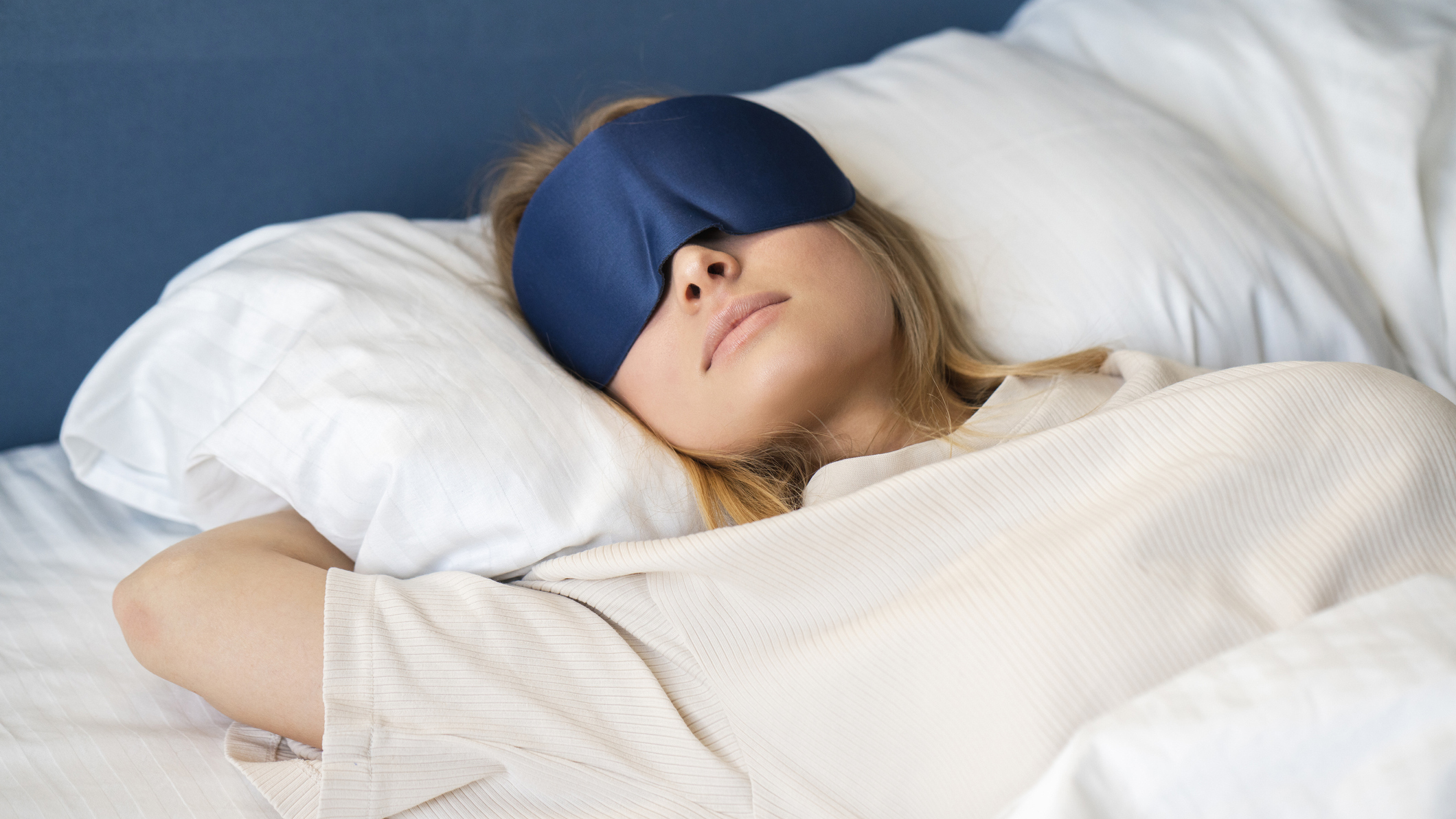
“REM sleep tends to be less in the beginning of the night and more at the end. We should also see between four to five cycles of REM as well.”
As for how much light sleep is normal, “This will depend upon several factors, similar to my [previous] answer. But as a general guideline we like to see between 45-50% light sleep (stages 1 and 2 combined) across the night. Light sleep makes up most of a person’s sleep.”
How to sleep better at night
Improving your sleep quality goes a long way to helping you feel more energized and refreshed when you wake up in the morning, and can also boost your mood. So how can you sleep better? Here are a few simple changes you can make…
Consistent bedtimes
As we’ve covered previously on Tom’s Guide, sticking to a consistent bedtime (going to bed and waking up at the same time each day) is one of the best things you can do for your sleep. In particular, waking up at the same time every day, even on weekends, helps you to sleep better at night because you'll be building up your 'sleep drive' (your desire to sleep).
Turn your bedroom into a sleep sanctuary
Optimizing your bedroom for sleep includes making sure it’s free of clutter and is cool, dark and quiet. All of these things will make it easier for you to relax and drift off, but one of the most important comfort factors is making sure you have the best mattress for your sleep needs. No budget for a new bed but you need more sleep comfort? Then a mattress topper is a good half-way house.
Create a relaxing bedtime routine
Sending signals to your brain that it’s time to wind down ahead of sleep is a great way to relax in the 30 or 60 minutes before bed. Your ideal bedtime routine might involve brushing your teeth and changing into your night clothes, or it could involve some deep breathing techniques such as the 4 7 8 sleep method, doing some light stretches or reading a book.
- Read more: Man sleeps for 30 minutes a night to 'double his life' — but does it work? A doctor responds
This article is part of Tom’s Guide’s Sleep Week 2022 celebration, running until Saturday 19 March. Stay tuned for plenty of sleep tips, advice and expert-rated products to help you sleep better this year.

Claire is a fully qualified journalist and Certified Sleep Science Coach with over 16 years’ product review experience. Claire is responsible for all mattress and sleep content published on Tom’s Guide, including our Best Mattress of 2025 buying guide. She is our expert on Saatva, DreamCloud, Nectar and Tempur-Pedic mattresses, and is also our in-house hybrid mattress specialist. Claire is certified to advise people on how to choose a mattress that best suits their sleep, body and budget, as well as helping them to create a nighttime routine and bedroom environment that promote good sleep. As Senior Sleep and Mattress Editor, Claire takes the lead on developing and overseeing rigorous testing procedures for our mattress reviews, both at home and in our fully equipped Sleep Lab. Claire leads a team of experienced sleep and mattress specialists who report on and test a wide range of mattress and sleep products, and she also writes about all things related to sleep, and has interviewed a wealth of experts including mattress designers and buyers, neuroscientists, and doctors of sleep medicine.
